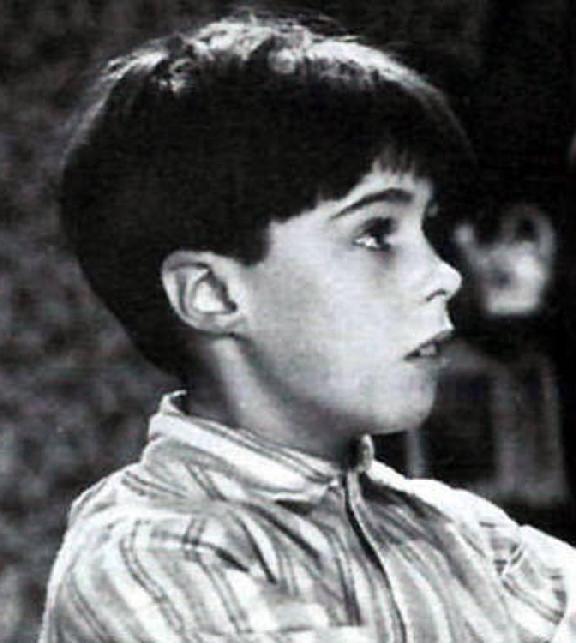
Figure 1.--John Singer played Tuesday in the 1935 English production of "Emil and the Detectives. |

|
The first English language version Emil and the Detectives, was made in 1935. The author, Erich Kästner was a noted German author of children's books. His work was, however, banned in his native Germany by the NAZIs. The English production here was released in America during April 1938. The production company was Richard Wainwright Productions. The director was Milton Rosmer. The screenplay was adapted from the book by Cyrus Brooks. The dialogue was written by Margaret Carter. It was filmed in black and white. The setting was shifted from Germany to England. Emil Blake travels from a small English village to spend his summer holiday in London with his grandma and cousin Polly. While travelling on the train he is robbed. A group of London streetwise children help him to apprehend the thief and get his stolen money back.
The first English language version Emil and the Detectives, was made in 1935. The author, Erich Kästner was a noted German author of children's books. His work was, however, banned in his native Germany by the NAZIs. The English production here was released in America during April 1938. The production company was Richard Wainwright Productions. The director was Milton Rosmer. The screenplay was adapted from the book by Cyrus Brooks. The dialogue was written by Margaret Carter. It was filmed in black and white.
Erich Kästner was a famous German writer of children's stories. He is probably best known for his book Emil and the Detectives. He was popular both in Germany and other countries, mostly within the German speaking world. He was well known in the Scandnavia and the Netherlands, but less so in France and English speaking countries. He was drafted at the age of 17 and was apauled both by the brutality of German military training as well as the War itself. Thus he became a life-long pacifist and as the NAZIs appeared on the political landscape, anti-NAZI. He worked as a journalist and began writing children's books. Most of his best books in terms of popularity were published during the Weimsar era. This included Emil and the Dective (Emil und die Detektive) and Pünktchen and Anton (1931). Kästner did flee Germany after the NAZI take over as many other abnti-NAZIs did (1933). He had his mother to care for and he wanted to chronicle what was happening in Germany. The Gestapo interrogated him, but did not arrest him. We are not entirely sure why. He was not involved in active resistance. The fact that he was known for children's books rather than serious literature may have been another factor. While he was not arrested, his books were burned.
The setting in the boook was Germany. The film shifted the setting to England. We always wonder if shifting the of well known books actially improves the populsarity of the film. This was often done by producers. We just wonder if it actually madeit more popular with the children. We assume that was the major reason the setting was changed. I supose it also made it easier to shoot.
The cast included: Emil Blake (John Williams), Mrs Blake (Mary Glynne), Grandma (Clare Greet), Polly (Marion Foster), man in the bowler hat (George Hayes), Policeman (George Merrit), Professor (Bobby Reiti / Robert Reity),
Tuesday (John Singer), Gussy (Donald Pittman), Jerry (Derek Blomfield), and Buster (Roy McBane). Tuesday as plsyed by John Singer is shown here (figure 1). Bobby Reiti plsayed the Professdor. That was te nick name given toi him by the other boys. They called him that because of his knowledge and leadership skills. (This is interesting and very German. The Germans look up to professors and other academicians. In America, the boys would never have called their leader the professor. If used at all it would have been a deriive term.)
An English reader tells usthat the English were more like the Germans, "English school boys might call a member of the friendship group, 'Professor' if he displayed superior knowledge and leadership."
Bobby was Italian by birth. After Italy declared war on Britain during World war II (1940), he was detained and placed in a detention camp. He was 15 years old at the time. He stayed there for 8 months and was released upon special request to form an army entertainment troop.
He has been described as a child prodigy for his acting ability as a child. He transferred to adult roles and appeared in two James Bond films.
Emil Blake travels from a small English village to spend his summer holiday in London with his grandma and cousin Polly. While travelling on the train he is robbed. A group of London streetwise children help him to apprehend the thief and get his stolen money back.
Navigate the Boys' Historical Clothing German pages:
[Return to the Main English Movie page]
[Return to the Main alpahbetical Em-Ez page]
[Return to the Main Movie page]
[German art]
[German choirs]
[German school uniforms]
[German royalty]
[German youth groups]
[German sailor suits]
[Lederhosen]
[Ethnic]
[Tights]
[Long stockings]
Navigate the Boys' Historical Clothing Web Site:
[Introduction]
[Activities]
[Biographies]
[Chronology]
[Clothing styles]
[Countries]
[Theatricals]
[Bibliographies]
[Contributions]
[FAQs]
[Glossary]
[Images]
[Links]
[Registration]
[Tools]
[Boys' Clothing Home]
